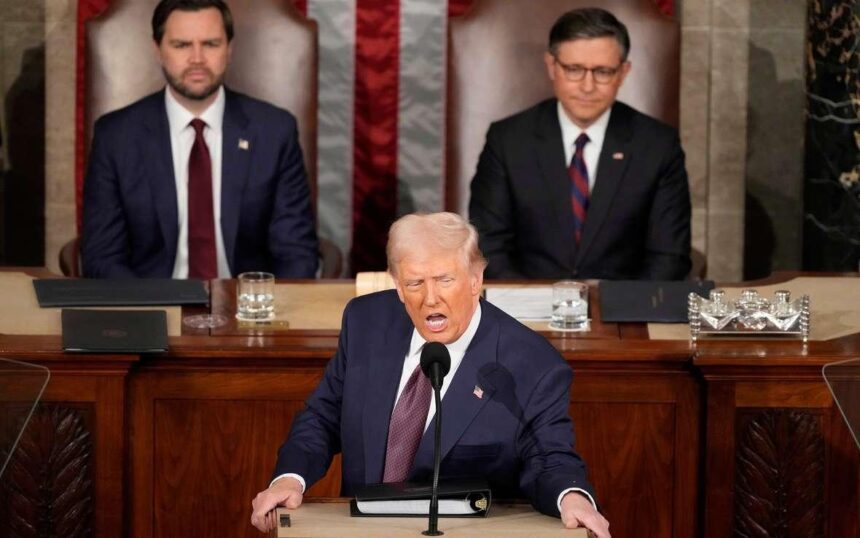Federal Court Blocks Trump Administration’s Halt on Harvard Funding
Judicial Rebuff of Federal Funding Suspension at Harvard
A federal court has invalidated the Trump administration’s attempt to suspend federal funding to Harvard University,ruling the action unlawful. This decision represents a major obstacle to the administration’s strategy of leveraging financial controls against academic institutions perceived as critical of its agenda. Harvard contested the funding freeze, asserting it infringed upon academic freedom and was executed without adequate legal basis. The ruling not only reinstates Harvard’s access to essential federal research grants but also signals potential shifts in how federal funding policies will be applied to higher education institutions moving forward.
Highlights from the court’s decision include:
- The funding suspension exceeded the administration’s legal authority.
- Harvard showed a strong probability of success in its legal challenge.
- The court underscored the critical importance of safeguarding academic independence and impartial research funding.
| Area Affected | Outcome |
|---|---|
| Research Funding | Reinstated |
| Institutional Standing | Enhanced |
| Federal Funding Policy | New Legal Precedent Established |
Legal Ramifications for Federal Grant Administration and Academic Autonomy
The court’s ruling overturning the Trump administration’s directive to freeze Harvard’s federal research funds highlights the delicate balance between executive power and academic freedom. It stresses the need for explicit legal frameworks when federal agencies impose conditions on grant allocations, especially when such conditions intersect with constitutional protections or institutional independence. The judgment affirms that abrupt funding suspensions without due process may violate administrative law and contractual rights, setting a critical precedent for future federal funding governance.
Essential legal principles emphasized:
- Due Process: Universities must receive formal notification and an chance to contest before funding is withdrawn.
- Limits on Executive Authority: Federal agencies cannot impose grant conditions unrelated to the grant’s intended purpose.
- Protection of Academic Freedom: Funding restrictions that appear to penalize specific viewpoints or research topics raise constitutional concerns.
| Legal Focus | Institutional Impact |
|---|---|
| Due Process | Mandates transparent procedures prior to funding cuts |
| Executive Power | Must conform to statutory authority |
| Academic Independence | Ensures research freedom free from political coercion |
Consequences of the Funding Freeze on Harvard’s Research Endeavors
The sudden suspension of federal funds caused significant disruption to Harvard’s critical research projects, affecting areas such as public health and emerging technologies like artificial intelligence. Numerous initiatives faced delays as financial resources dwindled, compelling faculty to seek alternative funding sources urgently. Graduate students and research staff encountered uncertainty, with some forced to halt or abandon their studies prematurely.
Most impacted disciplines included:
- Infectious disease biomedical research
- Environmental and climate sustainability studies
- Cutting-edge AI and computational science projects
Beyond immediate setbacks, the freeze jeopardized long-term partnerships with federal agencies and private sector collaborators. Harvard’s strategic objectives in advancing innovation and policy research were significantly hindered. The table below summarizes estimated delays and funding deficits during the freeze period:
| Research Program | Projected Delay | Funding Deficit |
|---|---|---|
| Global Health Research | 6 months | $12 million |
| Climate Action Laboratory | 4 months | $8 million |
| Artificial Intelligence Initiative | 5 months | $10 million |
Strategies for Universities to Counteract Political Interference in Funding
Academic institutions facing politically motivated funding challenges should emphasize clarity and legal readiness. Developing comprehensive documentation detailing funding sources, restrictions, and institutional governance can empower universities to resist undue political influence. Moreover, assembling specialized legal teams with expertise in education and constitutional law is vital for swift and effective defense against arbitrary funding disruptions.
Additional recommended approaches include:
- Launching public outreach campaigns to educate stakeholders about the institution’s mission and funding challenges
- Forming coalitions with peer institutions confronting similar pressures
- Utilizing media platforms and social networks to enhance positive public perception and support
Conclusion: Upholding Academic Freedom Amid Political Challenges
The recent judicial decision invalidating the Trump administration’s freeze on Harvard’s federal funding marks a pivotal moment in the ongoing discourse surrounding government authority and academic independence. This ruling highlights the judiciary’s crucial role in checking executive overreach and ensuring the uninterrupted progress of scholarly research and education. As this legal precedent unfolds, stakeholders nationwide will closely monitor its influence on future federal funding policies impacting higher education institutions.
